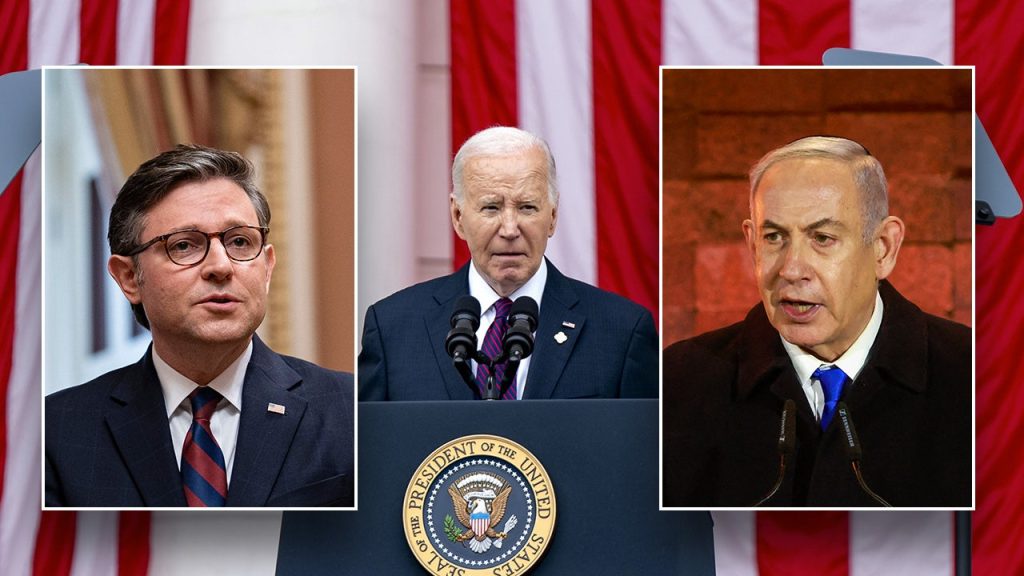House Speaker Mike Johnson is planning to invite Israeli Prime Minister Benjamin Netanyahu to address a joint meeting of Congress amid Israel’s conflict with terrorist group Hamas. The invitation is expected within the next eight weeks or after the August recess in September. Despite recent calls for new elections in Israel and pressure from Democrats, Majority Leader Chuck Schumer has agreed to the joint address by Netanyahu, emphasizing the ironclad relationship between the United States and Israel.
Schumer and Johnson are in discussions regarding the invitation, with Schumer emphasizing that the relationship with Israel transcends any one prime minister or president. However, the Biden administration has publicly broken with Israel by rejecting a bipartisan effort to sanction the International Criminal Court over warrants requested against Netanyahu and another Israeli official. Netanyahu expressed surprise and disappointment in President Biden’s decision, highlighting a strain in their relationship.
Israel has faced criticism for its military actions in Rafah, a city along the Gaza Strip, where attacks targeting senior Hamas leaders have resulted in civilian casualties. Activists and lawmakers have raised concerns about these actions, leading to increased scrutiny of Israel’s behavior. Despite warning Israel not to move forward with an offensive in Rafah, President Biden’s administration indicated that the actions did not cross the red line he had set, and no policy changes were announced in response.
The administration’s refusal to sanction the ICC over the warrants requested against Israel is the latest in a series of public breaks with the country. While the White House rejected the ICC decision and stated that sanctions were not the appropriate response, bipartisan support for the sanctions bill was ignored. Netanyahu expressed disappointment in Biden’s stance and highlighted the bipartisan consensus that had existed just days before the decision. The rift between Israel and the United States continues to deepen as disagreements over foreign policy actions persist.
The ongoing conflict between Israel and Hamas has put pressure on relationships between key political figures and world leaders. Republican Speaker Mike Johnson’s invitation to Israeli Prime Minister Benjamin Netanyahu to address Congress comes at a critical time in the conflict. Schumer’s agreement to the invitation despite internal Democratic pressures shows the importance of maintaining strong relationships with allies like Israel. However, the Biden administration’s diverging actions and statements with regard to Israel’s military operations have further strained the traditionally close relationship between the United States and Israel.
The situation in the Gaza Strip and Israel’s actions in Rafah have drawn widespread criticism and intensified scrutiny of Israel’s military operations. President Biden’s warnings to Israel about military offensives have not deterred the country from carrying out attacks that have resulted in civilian casualties. The administration’s reluctance to issue sanctions against the ICC, as requested by lawmakers, underscores the complexities of the relationship between the United States and Israel. As tensions continue to escalate and differences in foreign policy approaches persist, maintaining a stable and productive relationship between the two countries becomes increasingly challenging.


